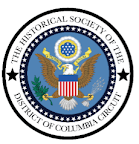[We have the schedule for the
Elizabeth Battelle Clark Legal History Series at the
Boston University Law School. For further information, contact Professor Jed Shugerman (jshug@bu.edu). DRE]
All talks are on Thursdays, 4:20–6:20pm, in room 410, unless otherwise indicated.
Thursday, January 18
Kevin Arlyck, Georgetown Law, “The Nation at Sea: The Federal Courts and American Sovereignty, 1789-1825”
Thursday, February 1
Ashraf Ahmed, Columbia Law, & Noah Rosenblum, NYU Law, “Building Presidential Administration”
Thursday, February 8
Annette Gordon-Reed, Harvard Law, & Peter Onuf, UVA History
Thursday, February 15
Aziz Rana, BC Law, “The Constitutional Bind: How Americans Came to Idolize a Document That Fails Them”
Thursday, February 29
Jilene Chua, BU History, “Birthright Citizenship in the Empire: Chinese-Filipino Intimacies and Race-making in US Colonial Philippines, 1912-1947.”
Thursday, March 7
Anna Lvovsky, Harvard Law, “Vice Patrol: Cops, Courts, and the Struggle Over Urban Gay Life Before Stonewall”
Thursday, March 21
Malick Ghachem, MIT History
Thursday, March 28, 4:20–5:20pm
Robert Tsai, BU Law, with guest and biography subject Steve Bright, Southern Center for Human Rights, “Demand the Impossible: One Lawyer’s Pursuit of Equal Justice for All”
Thursday, April 4
Ryan Williams, BC Law, “Historical Fact”
Thursday, April 11
Matthew Boutros, BU Law 3L, & Jed Shugerman, BU Law, on Federal War-Time Prosecutions Based on “Implied” presidential powers and “the law of nations” – without any federal statutes, 1790s
Tuesday, April 16, 5:00pm (special Tuesday history department lecture in the History Department, not the law school)
Reva Siegel, Yale Law School, on
Rahimi, the Second Amendment, Domestic Violence, and “Originalism” after
Bruen



















